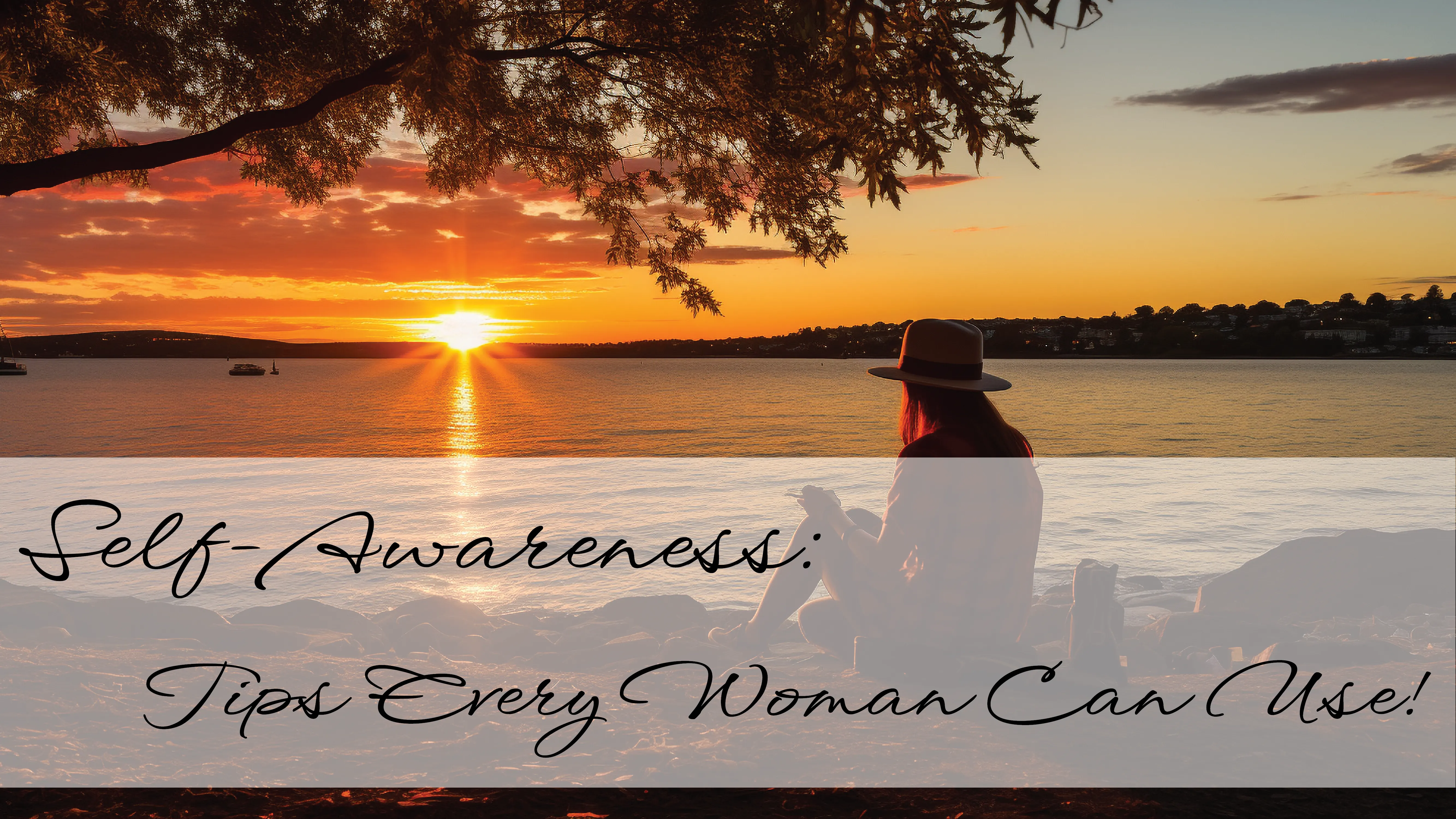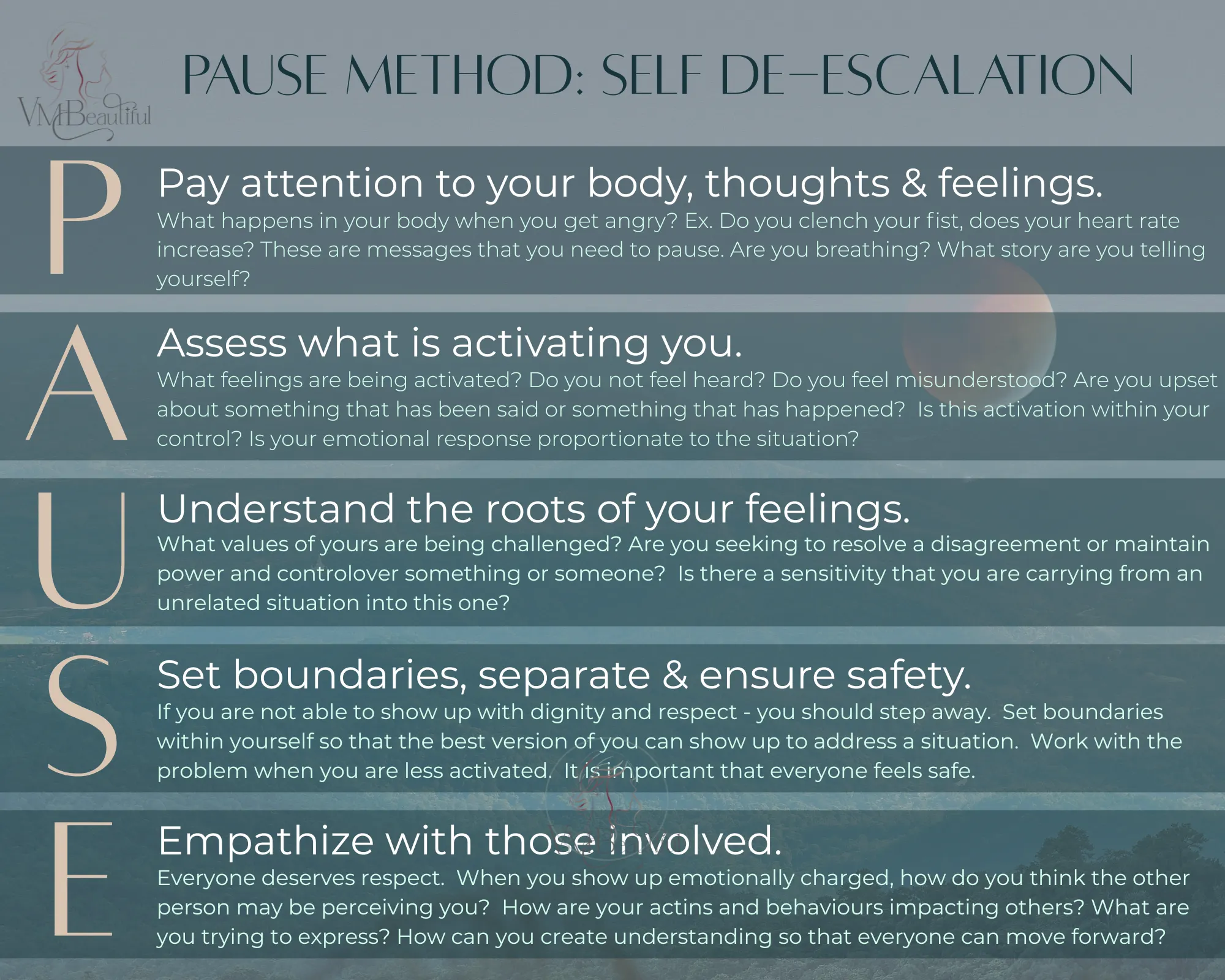
April 2.2025
As women, we often find ourselves wearing a bunch of different HATS; caretaker, professional, partner, friend, chef, gardener etc, all while ensuring everyone else’s needs are met. But in the process, how often do we pause to check in with ourselves?
Self-awareness and emotional regulation are two of the most powerful tools we can cultivate for personal growth, mental well-being, and resilience. They allow us to respond to life’s challenges with intention rather than reaction. Oh Girl, let me tell you this isn’t always easy, sometimes it can be confronting and uncomfortable. But it is also empowering and exhilarating, and when we take these steps, we take our lives back!!
What Is Self-Awareness?
Self-awareness is the ability to recognize our thoughts, emotions, and behaviors in real time. It helps us understand why we feel a certain way and how those feelings shape our actions.
Ask yourself:
- When I am overwhelmed, how do I react?
- What situations trigger stress or frustration?
- Am I honoring my own needs, or am I constantly putting others first?
- Dig a little deeper... Is this really about the other person and what they are doing or is it inside me and about what is coming up for me?
Why Emotional Regulation Matters
Emotional regulation is about managing our emotions in a way that serves us rather than controls us. It doesn’t mean suppressing feelings—it means navigating them with awareness and choice.
For example, if you feel frustrated after a long day, instead of snapping at a loved one, you might:
- Take a deep breath and pause before responding (P.A.U.S.E)
- Acknowledge the feeling without judgement
- Find a healthy outlet, like journaling, walking or simply giving yourself permission to rest
Practical Steps to Strengthen Self-Awareness and Emotional Regulation
1. DAILY CHECK-INS
Set aside five minutes each day to ask yourself... How am I feeling? What do I need right now?
This small habit builds mindfulness and clarity. It allows you to be in touch with Who You Choose to BE!
2. RECOGNIZE TRIGGERS
Notice the patterns: are there certain situations, people, or tasks consistently triggering stress or anxiety? Awareness is the first step to change. Recognize that it is more often than not, over there with them, but truthfully it is something brought into your awareness for you to transform in yourself.
3. PAUSE BEFORE REACTING
When faced with an emotional trigger, practice the "PAUSE" method:

4. OWN YOUR TRIGGERS
Understanding your emotional triggers and taking responsibility for why they arise is a powerful step toward self-awareness. Instead of reacting impulsively, recognize what is fueling your emotions. And if you do overreact, have the courage to acknowledge it, take accountability, and apologize when necessary. This not only strengthens your relationships but also deepens your personal growth.
5. SELF-COMPASSION OVER SELF-CRITICISM
When you slip up, don’t be hard on yourself. Talk to yourself the way you would a dear friend, with kindness, patience, and encouragement. Developing self-love & self-care creates a more meaningful relationship with yourself and others.
Self-awareness and emotional regulation are lifelong practices, not overnight transformations. The more we practice tuning in to ourselves, the better equipped we are to handle life’s ups and downs with grace and strength. A little reminder to BE kind to yourself during this process, life isn’t always what we expect, but we get to chose how we show up and respond during the “shitstorm” By prioritizing your emotional well-being, you’re not just improving your own life—you’re setting an example for those around you. You deserve the same love, care, and attention that you so freely give to others. Just remember this…Treat yourself the way you want others to treat you.
Now, take a deep breath—what do you need at this moment?



